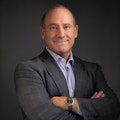Trade: The Unfounded -- and Risky -- Scapegoat for Society’s Ills
Anti-trade fervor is reaching heights we haven’t seen since the Smoot–Hawley Tariff was passed in 1930.
That’s the protectionist legislation—with its menu of 900 tariff duty increases—that fueled the fire for the worst depression in U.S. history. As it was being considered by Congress in 1930, more than 1,000 economists, along with scores of newspaper editors, urged President Hoover not to sign the bill. He did anyway. The legislation raised duties by 20% (deflation raised them an additional 10%), and imports fell 40% over the next two years. As The Economist recounted three-quarters of a century later, this “worldwide [trade] protection of the 1930s took decades to dismantle.”
So here we are again. Another economic panic, this time the Great Recession, has unleashed the latest round of isolationism and nativism. Hillary Clinton and Donald Trump, who can’t agree on the time of day, are in lockstep in their professed belief that, in the latter’s words, “foreigners are killing us on trade.” (It could have been more extreme: Bernie Sanders and Ted Cruz are arguably even more anti-trade than the official nominees.) This means no matter who gets in the White House, we’re going to see a push to reverse the pro-trade policies of the post-war era.
Of course, closed-door political rhetoric is nothing new in America. Over the centuries, it’s been the rule rather than the exception.
As I.M. Destler points out in a Harvard Business Review article this past spring, American manufacturers have historically opposed trade liberalization. In the early years of the country, northern manufacturers lobbied for high tariffs on competing imports while southern farmers pushed for open trade to boost cotton exports. It wasn’t until the 1980s—when, as Destler notes, the “bulk of large U.S. industries had internationalized their production and had become dependent on foreign trade”—that the business community united behind trade expansion.
Today, globalization, technological advances, demographic changes and economic uncertainty have combined forces to divide Americans. A Gallup poll earlier this year showed that 28% of the public favored leaving our current trade agreements, 28% opposed such action, and 43% admitted to not knowing enough about the economics and politics of trade to have an opinion.
Despite the inevitable adverse impact on some industries (Schumpeter’s “creative destruction”), the benefits of trade liberalization continue to outweigh the costs. International trade provides U.S. companies and individuals with a far greater variety of goods and services and helps reduce prices. According to the Financial Services Forum, our annual GDP is $1 trillion higher each year than it would be without the era of trade and investment liberalization. Moreover, 95% of prospective customers live outside of the United States; closed-door policies cut off these export opportunities.
Conversely, President Obama’s Council of Economic Advisers estimated that if the next administration built a figurative wall around the economy, middle-income Americans would lose 29% of their purchasing power—and that lower-income Americans would lose upwards of 62% of their purchasing power, because they spend proportionally more on traded goods. If anti-trade policies are adopted, other countries—and the manufacturers exporting from them—will take market share from American companies by stepping into the vacuum. For example, the opportunities of the Trans-Pacific Partnership (TPP)—which would eliminate 18,000 foreign tariffs on American goods and services—will be lost.
In an era of economic uncertainty and increased market penetration by foreign products and people alike, anti-trade rhetoric makes for a good sound bite. But the one-lane road of global trade has become a multi-lane expressway, and there’s no turning it back into a country road. Instead of opposing the expansion of trade through reduced barriers, Americans would be far better served if politicians focused on preparing the workforce for inevitable change through skills training and job exchanges.
About the Author

Stephen Gold
President and Chief Executive Officer, Manufacturers Alliance
Stephen Gold is president and CEO of Manufacturers Alliance. Previously, Gold served as senior vice president of operations for the National Electrical Manufacturers Association (NEMA) where he provided management oversight of the trade association’s 50 business units, member recruitment and retention, international operations, business development, and meeting planning. In addition, he was the staff lead for the Board-level Section Affairs Committee and Strategic Initiatives Committee.
Gold has an extensive background in business-related organizations and has represented U.S. manufacturers for much of his career. Prior to his work at NEMA, Gold spent five years at the National Association of Manufacturers (NAM), serving as vice president of allied associations and executive director of the Council of Manufacturing Associations. During his tenure he helped launch NAM’s Campaign for the Future of U.S. Manufacturing and served as executive director of the Coalition for the Future of U.S. Manufacturing.
Before joining NAM, Gold practiced law in Washington, D.C., at the former firm of Collier Shannon Scott, where he specialized in regulatory law, working in the consumer product safety practice group and on energy and environmental issues in the government relations practice group.
Gold has also served as associate director/communications director at the Tax Foundation in Washington and as director of public policy at Citizens for a Sound Economy, a free-market advocacy group. He began his career in Washington as a lobbyist for the Grocery Manufacturers of America and in the 1980s served in the communications department of Chief Justice Warren Burger’s Commission on the Bicentennial of the U.S. Constitution.
Gold holds a Juris Doctor (cum laude) from George Mason University School of Law, a master of arts degree in history from George Washington University, and a bachelor of science degree (magna cum laude) in history from Arizona State University. He is a Certified Association Executive (CAE).
